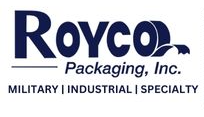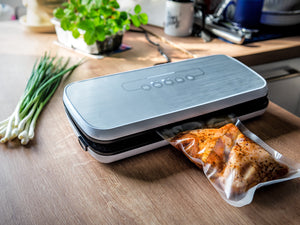In today's fast-paced world, heat sealers play an integral role in various industries, ensuring product integrity and safety. These remarkable devices are designed to seal various types of packaging materials, from food to pharmaceuticals and beyond. With their ability to create strong, airtight seals, heat sealers have become indispensable tools for manufacturers, retailers, and consumers alike.
In this post, we delve into the world of heat sealers and unveil 8 different kinds of these remarkable devices. Each type of heat sealer possesses unique features and functionalities, catering to specific sealing requirements. Whether you are a packaging professional or simply curious about the technology behind these devices, join us as we explore the fascinating realm of heat sealers.
Impulse Heat Sealers
Impulse heat sealers are widely used for sealing a variety of packaging materials, including polyethylene, polypropylene, and similar films. These sealers utilize a heating element that rapidly heats up and cools down, creating an airtight seal by fusing the packaging material together. Impulse sealers are popular for their versatility, ease of use, and cost-effectiveness. They come in various sizes and designs, making them suitable for both small-scale operations and industrial production lines.
Constant Heat Sealers
Constant heat sealers, also known as hot bar sealers or direct heat sealers, are specifically designed for packaging materials that require a higher temperature for sealing, such as thick laminates or foil bags. Unlike impulse sealers, constant heat sealers maintain a consistent temperature throughout the sealing process. These sealers are equipped with heated jaws or bars that apply steady heat and pressure to create a secure seal. Constant heat sealers are favored for their ability to handle thicker materials and their suitability for continuous sealing applications.
Vacuum Sealers
Vacuum sealers are specialized heat sealers used primarily in the food industry to extend the shelf life of perishable goods. These sealers remove the air from the packaging before sealing, creating a vacuum environment that inhibits the growth of bacteria, molds, and other contaminants. Vacuum sealers are available in various designs, including handheld models for domestic use and larger, automated machines for commercial and industrial applications. They are essential for preserving food freshness, preventing freezer burn, and maintaining product quality.
Band Sealers
Band sealers, also known as continuous sealers, are commonly used in high-volume packaging operations. These sealers utilize a conveyor belt system to feed packages through the sealing mechanism. Band sealers are efficient and allow for continuous sealing without the need for manual intervention. They are capable of sealing a wide range of materials, including plastics, foils, and laminates, making them ideal for packaging products such as snacks, powders, and liquids.
Clamshell Sealers
Clamshell sealers, as the name suggests, are designed to seal clamshell packaging commonly used for retail products. These sealers employ heat and pressure to bond the clamshell halves together, creating a secure, tamper-evident seal. Clamshell sealers are widely used in the electronics, cosmetic, and consumer goods industries. They are efficient, user-friendly, and provide a professional-looking seal that enhances product presentation and security.
Induction Sealers
Induction sealers are widely used in the pharmaceutical, chemical, and food industries for sealing containers with tamper-evident caps. These sealers employ electromagnetic induction to create a hermetic seal between the cap and the container. The induction sealer heats a foil liner, which is placed on the container's opening, causing the foil to bond with the container. This sealing method provides excellent protection against leakage, tampering, and contamination. Induction sealers are highly efficient and offer fast sealing speeds, making them ideal for high-volume production lines.
Foot Pedal Heat Sealers
Foot pedal heat sealers, also known as impulse sealers with foot pedal operation, are designed for applications that require hands-free operation. These sealers feature a foot pedal that activates the sealing process, allowing operators to have both hands free to handle the packaging material. Foot pedal heat sealers are commonly used in industries such as medical, electronics, and automotive, where precision and control are essential. They offer convenience, increased productivity, and improved sealing accuracy, as operators can focus on positioning the material while sealing with precision timing.
Pneumatic Heat Sealers
Pneumatic heat sealers are heavy-duty sealers that utilize compressed air for the sealing process. These sealers are capable of generating higher pressure and heat than manual or impulse sealers, making them suitable for sealing thicker and tougher materials. Pneumatic sealers are commonly used in industries such as automotive, aerospace, and manufacturing, where a robust and reliable sealing solution is required. They offer consistent and uniform sealing pressure, ensuring strong and secure seals. Pneumatic heat sealers can be operated manually or integrated into automated production lines, providing versatility and flexibility to accommodate various sealing requirements.
Heat sealers have revolutionized the packaging industry by ensuring product integrity, freshness, and safety. With a myriad of options available, manufacturers can choose the most suitable heat sealer based on their specific packaging requirements. Impulse heat sealers are versatile and cost-effective, while constant heat sealers handle thicker materials with ease. Vacuum sealers are essential for preserving food freshness, and band sealers provide efficient continuous sealing. Clamshell sealers, on the other hand, are designed specifically for retail packaging.
As technology advances, heat sealers continue to evolve, catering to the ever-changing needs of various industries. Whether you are packaging food, pharmaceuticals, or consumer goods, there is a heat sealer or heat sealer bag tailored to your requirements. By understanding the different kinds of heat sealers available, businesses can make informed decisions and maximize the benefits of this essential packaging tool.
